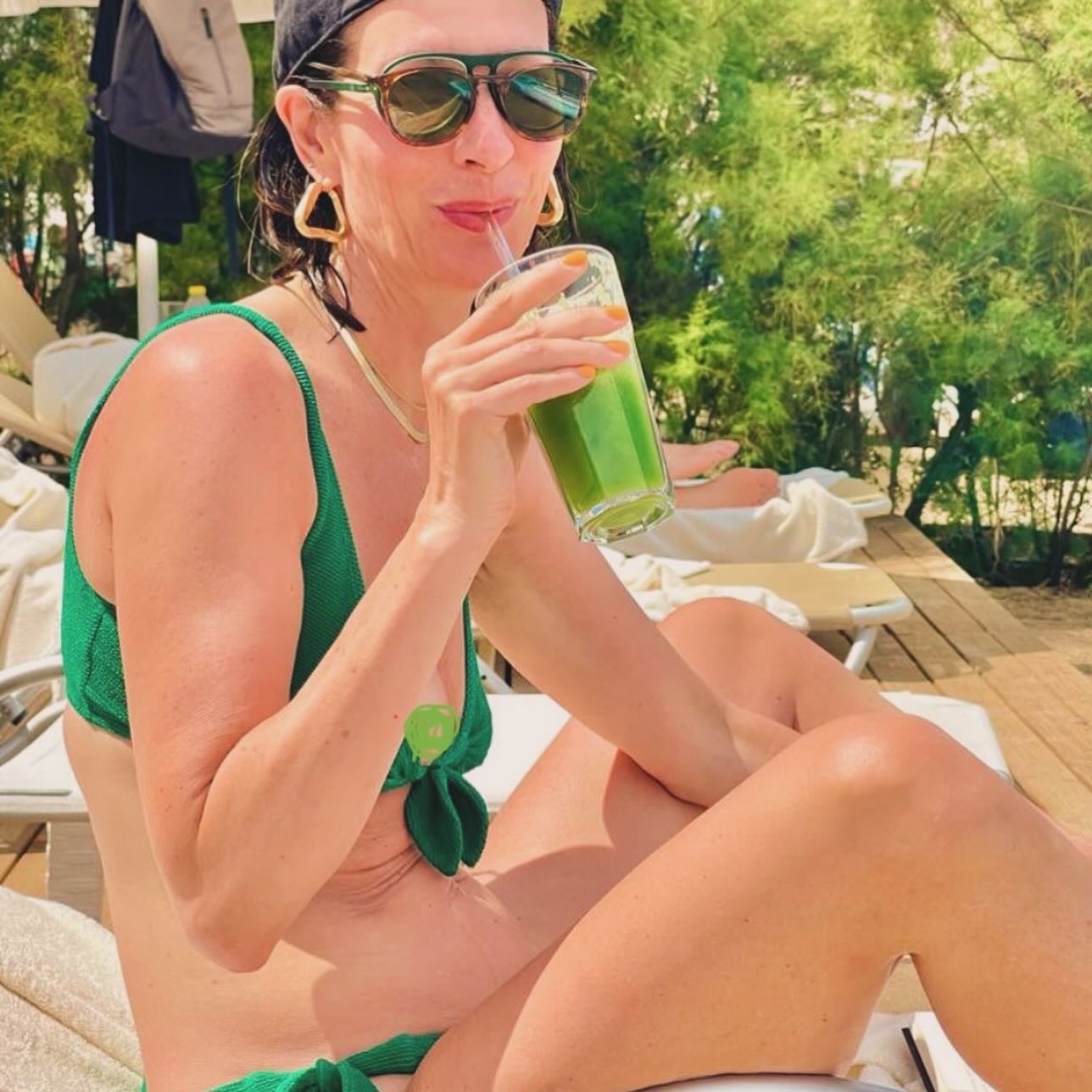Did I have a drinking problem – or was it caused by ADHD?
When Melanie Rickey gave up drinking it didn’t stop her ‘washing machine brain’ from turning. It was only after she wrote about it for this newspaper that someone pointed out that something else might be going on. Here’s what happened next...

Melanie Rickey on holiday with a healthy green juice
How much do you know about dopamine? You might be low on dopamine now, as you recover from your new year’s partying. It’s the neurotransmitter of pleasure, anticipation, reward and hedonistic ecstasy. Its production in our brains is stimulated by sex, drugs, smoking, alcohol, shopping, gaming, gambling, eating, social media, sugar and even coffee. Our chase for it powers the compulsive overconsumption of most things. It’s why Ozempic is the quick fix of the decade, and though it regulates sugar levels, recent research suggests that what it’s also quelling is dopamine reward pathways.
A lack of dopamine results in withdrawal, comedowns, craving and buyer’s remorse, until it settles back into balance. The answer to low dopamine is often to chase more, and when dopamine balance is wildly out of control, it results in addiction, and a never-ending see-saw of pleasure-seeking and painful withdrawal.
Back in October, I wrote a piece for The Independent that became a catalyst for my entire life to make sense and change for the better, and it’s a tale about chasing dopamine. The story was about my utter bafflement as to why – three and half years after going to rehab to quit drugs and alcohol, joining a 12-step fellowship and becoming every cliche of a recovery warrior – I was still struggling with what addicts affectionately call “washing machine brain”.
Subscribe to Independent Premium to bookmark this article
Want to bookmark your favourite articles and stories to read or reference later? Start your Independent Premium subscription today.
Join our commenting forum
Join thought-provoking conversations, follow other Independent readers and see their replies